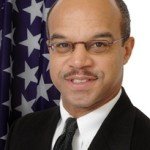by Stephen Koranda, Kansas News Service
The Democratic Governor and conservative Republicans who control the Legislature don’t agree on any of the key issues, and they’re all rushing to do something while the possibility of a COVID-19 shutdown lingers.
Topeka, Kansas — Fights between Republican lawmakers and the Democratic governor — over new taxes and her power to shut down businesses in a pandemic — threaten calls on both sides for political unity.
Meanwhile, conservatives in the Legislature push ahead quickly to amend the Kansas Constitution to declare it contains no right to abortion.
And lawmakers find themselves rushing on high-profile issues to outrun a pandemic that could force them to shut down the Statehouse if there’s an outbreak in the building.
The pandemic already took the pomp and circumstance out of the governor’s State of the State address — the chief executive’s high-profile chance to talk directly to legislators.
With COVID-19 lurking, the annual event went from a huge gathering in the House chamber to a simple speech recorded in a Topeka TV studio.
In the wake of violence at the U.S. Capitol in Washington, Kelly called for lawmakers to set a positive example of civility.
“This isn’t like any other moment. We’re being tested like never before,” Kelly said in her speech. “This year, working together isn’t simply something I want – it’s something we owe to the people of Kansas.”
The coronavirus cut last year’s session short, so some fights that had been simmering before could bubble over this year.
The call for unity was mixed with hints of those conflicts.
In her speech, Kelly said tax cuts were a bad idea when the state tried them in the previous decade. She took a preemptive strike against Republicans eyeing tax cuts this year. She compares it to the government-cutting policies the state took after approving tax cuts when Sam Brownback was governor.
“My colleagues in the Legislature have already forgotten just how devastating that experiment was to our economy, our schools, and our future,” Kelly said.
The new Republican Senate president, Ty Masterson, sent a similar message, calling for working together when possible. But Masterson also said Republicans will consider tax cuts and further limiting Kelly’s power to close businesses or order mask mandates in response to the pandemic.
“We will not support the governor’s regime of unconstitutional mandates and edicts,” Masterson said in the GOP response to Kelly’s speech. “We trust you will always make the best decisions for your family – not the government.”
Kelly is making another sales pitch for Medicaid expansion, although that’s almost certainly doomed for yet another year by an even more conservative Republican majority.
The governor wants to spend more money for Medicaid expansion, education, mental health care and the state’s unemployment system.
Adding that spending while keeping the budget balanced will take more money, and the governor is looking at $90 million in taxes from online sales to keep the budget out of the red.
Kelly’s proposal would tax digital purchases of movies or music. Her budget director, Adam Proffitt, said the current system gives out-of-state online sellers an unfair advantage over storefront retailers in Kansas.
Buy a vinyl record or a movie at a Kansas store, and you’ll pay sales tax. Buy that same music or film in a digital format online, and it likely won’t be taxed.
“Which is just not fair to the business that chose to invest in Kansas and has a brick-and-mortar store here,” Proffitt said during a presentation on the budget. “They’re at a disadvantage. We need to close that loophole.”
In addition, Kelly’s plan would institute a sales tax when businesses in other states sell products to Kansans through websites like Amazon. Transactions with those third-party sellers often avoid Kansas sales tax.
Kansas consumers are supposed to note those out-of-state purchases when they file their state income taxes and pay any remaining tax.
The internet taxes have failed in the past and they aren’t getting a warm response from Republicans this year.
“I don’t see it going forward,” Republican House Appropriations Committee Chairman Troy Waymaster said in an interview. “I’ve talked to other representatives that feel the same way.”
The governor also wants to refinance scheduled payments on a multi-billion-dollar deficit in the state pension plan. That would lower the annual payments but increase the overall amount the state pays.
Waymaster said lawmakers can eliminate a more than $100 million budget shortfall in the $8 billion budget without tax increases or pension changes.
“I know it’s a shortfall, but it’s still manageable,” Waymaster said. “We could actually make some adjustments without tax increases.”
Meanwhile, legislators are in a rush, with the focus on high-profile issues like a constitutional amendment on abortion, tax policy and the pandemic response.
The abortion amendment has complicated other issues in the past. Last year it derailed a Medicaid expansion debate. This year, the amendment is one of the first issues lawmakers are tackling. Other issues could be pushed aside for now as legislators focus on a few top priorities.
Jeanne Gawdun, director of government relations with anti-abortion group Kansans for Life, said the speed is in case coronavirus ends the session early.
“We saw that happen last year,” Gawdun said. “This is such a fluid situation.”
The Kansas House passed the anti-abortion amendment on Friday morning with a two-thirds majority, and it will go to the Senate next. It is a total ban on abortion that calls for the issue to be on the ballot in August 2021.
Stephen Koranda is the Statehouse reporter for Kansas Public Radio and the Kansas News Service. You can follow him on Twitter @kprkoranda.
The Kansas News Service is a collaboration of KCUR, Kansas Public Radio, KMUW and High Plains Public Radio focused on health, the social determinants of health and their connection to public policy. Kansas News Service stories and photos may be republished by news media at no cost with proper attribution and a link to ksnewsservice.org.
See more at https://www.kcur.org/news/2021-01-21/kansas-officials-start-with-talk-of-unity-but-fights-over-taxes-and-abortion-loom


